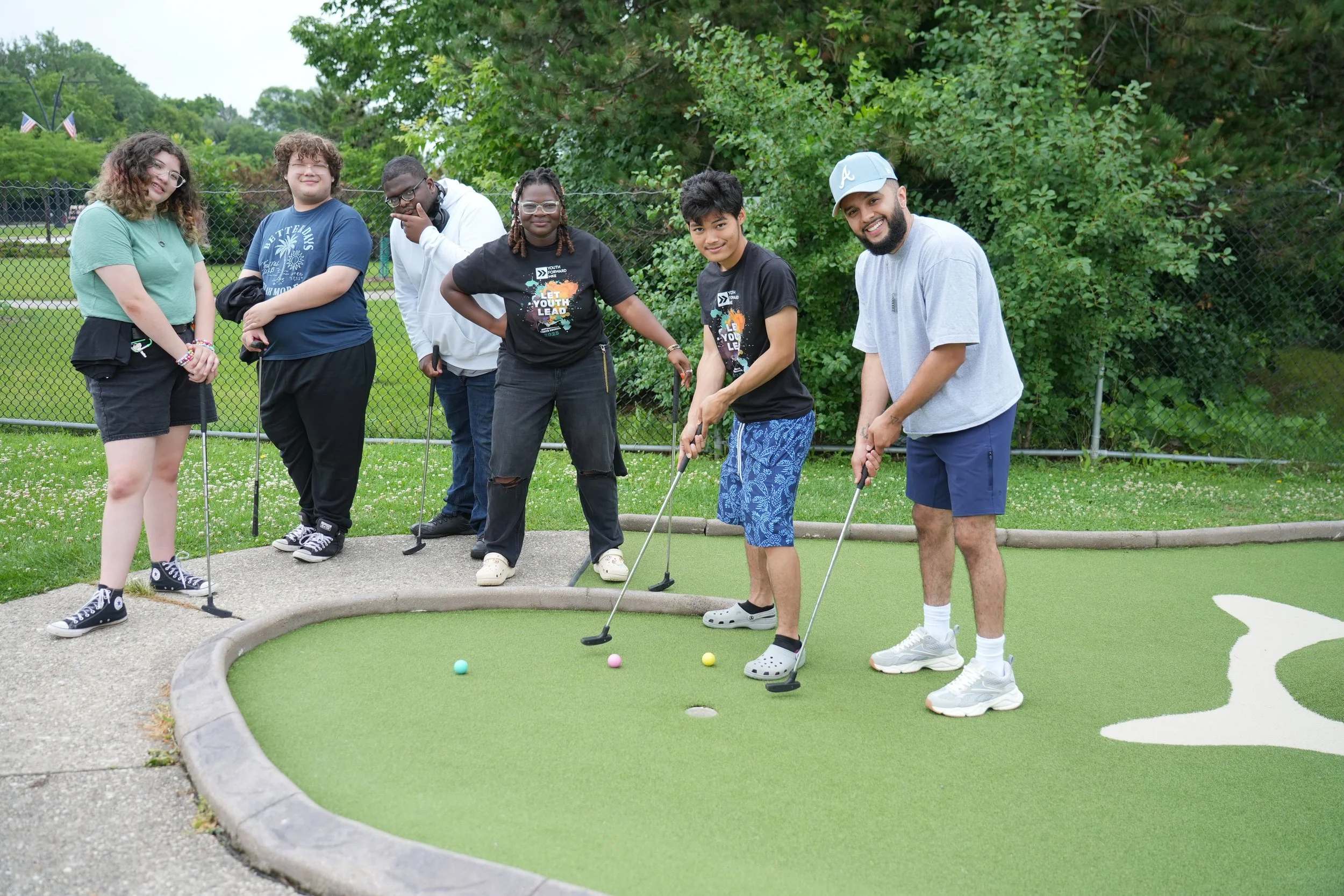Youth Drive Change through AYC Placements
On October 2, the Youth Forward MKE Coalition came together to celebrate how far we’ve come – and to lay the groundwork for what comes next. Under the theme Celebrating Today, Building Tomorrow, the meeting was a powerful reminder of what happens when young people and adults share decision-making power, learn from one another and lead side by side.
“Even in a time marked by uncertainty, erasure and social challenges, it's important to lift up the bright spots – which are our youth, their growth and the community that continues to support them,” said Maria Hamidu, the Youth Forward MKE project manager. “By prioritizing our young people, we are creating change and building a more hopeful community.”
Rising Leaders, Real Impact
Nowhere is that vision more evident than in the work of the Autonomous Youth Council (AYC), where young leaders are gaining real-world experience, influencing decisions and shaping the future alongside community partners. At eight organizations across the city, they’re championing youth-adult equity and driving changes that will impact Milwaukee for years to come.
At the African American Roundtable, Amir Williams is using his talents to canvass the community, gathering input on a $600,000 grant. At Lad Lake, Kaylee Marsh is helping girls campaign for office while pushing for policy revisions that will better cater to youth. At Arts @ Large, Lola Johnson is conducting interviews to bring other youth on board for their Streets with a Story project. And at Data You Can Use, Deh Nee is both sitting on the board and forming connections that will help him jumpstart his future career.
(Check out their stories - and more - in our new Q&A series!)
Altogether, 26 young people are making their mark – and growing as leaders in the process.
“I just feel more adultish, in a way, like I have somewhat of an authority because I’m helping to choose people to be part of this big project,” explained Lola. “I feel like I’m doing something to help the community in a way. … And Arts @ Large makes me feel very heard and included.”
During Data You Can Use’s annual Data Day, Deh used what he’s learned to be a powerful voice for change. “While reviewing the data, I noticed significant disparities across communities, especially among Black and Brown youth, which highlighted how class and household factors impact opportunities. I made individual decisions and encouraged others at my table to support organizations that best serve youth and families,” he said.
Learning from Youth
The impact of the AYC extends beyond the young people themselves. During the meeting, placement partners described how council members’ contributions are reshaping their organizations and inspiring new ways of thinking.
At Arts @ Large, Sam Kacala admires the way youth have tackled the interview process, asking pertinent questions while making the candidates feel comfortable and welcome. “I thought that was a really cool use of that power. But I think the whole project has pretty much been like that,” he shared. “And then even beyond that, they’ve been influencing how our organization views programmatic changes with youth-led voices and youth equity.”
Xela Garcia of Walker’s Point Center for the Arts highlighted how youth helped design and launch the Teen Artist in Residence program, shaping the structure, sequence, topics and even the guest artist lineup. “I think they really helped us understand that authentic youth partnership needs to be flexible, relational and rooted in trust,” she explained. “The partnership has reaffirmed that meaningful youth collaboration takes time and adaptability, but that the outcomes – whether that's structural or human – can really change an organization.”
Building Stronger Partnership
Supporting the program from behind the scenes, consultant Clintel Hasan helps program staff and partners build authentic youth-adult partnerships, ensuring that every placement is a space where young leaders are seen, heard and valued.
“All of the AYC sites are already invested in building youth-adult equity,” Clintel said. “But figuring out how to actually do that – what it looks like day to day – requires dedicated time and capacity from both sides.”
She noted that sustaining strong placements means ensuring each organization has at least one staff member whose role focuses on youth leadership, and that the youth themselves have the space and support to fully engage. Extending the 12-month cycle and hours of participation, she added, could allow for deeper learning and impact.
Clintel’s thoughtful recommendations will help inform the next stage of the AYC. In 2026, an alumni program will engage this year’s young leaders in new ways, while a new cohort steps forward to shape the next chapter of youth-adult partnership in Milwaukee.


